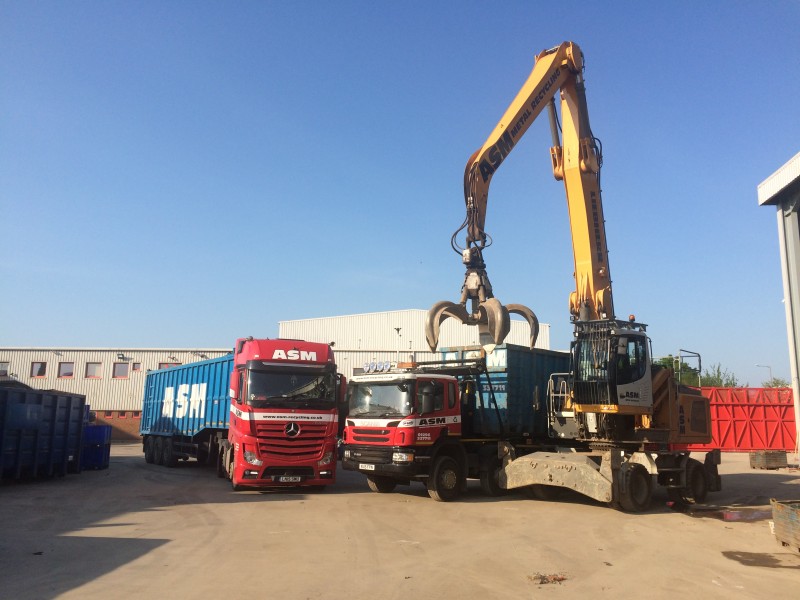later post | index | earlier post
Construction Waste Management
Tuesday, 15 June 2021
All construction companies have a duty of care towards managing their waste under section 34 of the Environmental Protection Act. This means following the guidelines and legislation to make sure your company is safely removing waste from any and all sites. This article explains how this can be done and how we can help you at ASM.
What legislation supports and enforces construction waste management?
The Environmental Protection Act 1990, is all about controlled, on-land wastes. It sets out definitions on all aspects of waste management to help companies comply.
Importantly, it outlines the duty local authorities have to collect waste. As a business, you have a duty to ensure that any waste your company produces is handled safely and within the law. Your ‘duty of care’ applies to anyone who produces, imports, transports, stores, treats or disposes of controlled waste from businesses or industries.
Penalties for breaching the act include fines and imprisonment, but you are more likely to be issued a ‘clean-up notice’ before this happens to make sure you follow waste management law.
What are the different types of construction waste?
Construction, demolition, and excavation sites create various types of waste. These are generally put into groups, such as inert waste, which includes concrete, bricks, and asphalt, so that they can be dealt with easily and recycled or disposed of in a safe way.

Common types of construction waste include:
- Concrete, bricks, Soil, stones, and dredging
- Tiles, cement, and ceramics
- Paints and varnishes
- Wood, glass, and plastic
- Insulation and asbestos materials
- Bituminous mixtures, coal tar, and tar
- Metallic waste (such as pipes)
- Adhesives and sealants
You should always recycle whatever you can, as most waste can be recycled these days including metal, concrete, and wood. By separating waste into categories, it will be easier to recycle further down the line, whether you do that or you pay for a collection service.
You can get advice about what can and can’t be recycled, as well as how to separate and store it, from the manufacturer of your materials and your waste management contractor.
Hazardous waste
Some of the waste produced on construction sites may be of a hazardous nature. Specialist measures must be taken to safely dispose of or recycle this waste. The legislation concerned with this type of waste is The Hazardous Waste Regulations 2005 and covers a much wider range of waste than previous law and is far broader than that of special waste.
Hazardous waste is defined by gov.uk as “if it (or the material or substances it contains) are harmful to humans or the environment”.
Some examples of hazardous waste include:
- Asbestos
- Chemicals, such as brake fluid or print toner
- Batteries
- Solvents
- Pesticides
- Oils (except edible ones), such as car oil
- Equipment containing ozone depleting substances, like fridges
- Hazardous waste containers
Why is construction waste management important?
The UK construction industry produces an enormous amount of waste. According to Government statistics:
“It is estimated that the UK generated 41.1 million tonnes of commercial and industrial (C&I) waste in 2016, of which 33.1 million tonnes (around four fifths) was generated in England. The latest estimates for England only indicate that C&I waste generation was around 36.1 million tonnes in 2017 and 37.2 million tonnes in 2018”.
However, in 2016, they managed to recover 60.2 million, which equates to a recovery rate of 91%. This means that, despite the UK’s high output of waste from construction, our reuse and recycling processes are overall positive.
To help maintain this, your business must understand how to properly manage its waste. Resources are finite and recycling avoids sending a majority of waste to landfill.
The benefits of proper construction waste management include:
- Compliance. It is a legal requirement for businesses to control their waste. Doing so reduces risk of fines, penalties or getting a bad reputation.
- Improved reputation. As noted above, businesses that demonstrate they’re doing their part for the environment will develop a positive reputation, which improves their relationships with customers and clients.
- Maintaining high standards of health and safety. Having procedures in place to properly manage waste protects workers and members of the public from accidents.
- Reduced costs including reduced spending by reusing materials.
- Corporate social responsibility (CSR). Managing waste will help limit how much you generate and dispose of helping to conserve our planet’s natural resources and minimise the energy required to transport and reprocess waste.
ASM can help you manage construction waste
At ASM, we can assist you with construction waste in a few ways. As well as end-of-life vehicles, we can also recycle scrap metal, tyres, car parts and electronic equipment (WEEE recycling).
Click here to sell your scrap metals with ASM or find out more about Scrap metal collection with ASM.
If you are unable to reach one of our depots, we can also arrange a collection through our collection service.
later post | index | earlier post
Recent posts
- What to do with radioactive scrap metal
- How does metal recycling benefit the economy and the environment?
- 5 common metals that can be recycled
- How does metal recycling work?
- How to Sort Metal for Scrap
- How to classify the different types of waste your business produces
- What is WEEE waste?
- Can iron be recycled in the UK?
- What has the most copper in it to scrap?
- How to better understand scrap metal pricing
- Is there a link between copper and brass prices?
- How to make money from cable scrap
- How many different types of copper are there?
- What can I sell to a scrap metal yard?
- Preparing for the collection of scrap metal